The $130 Million Cell-Phone Scam
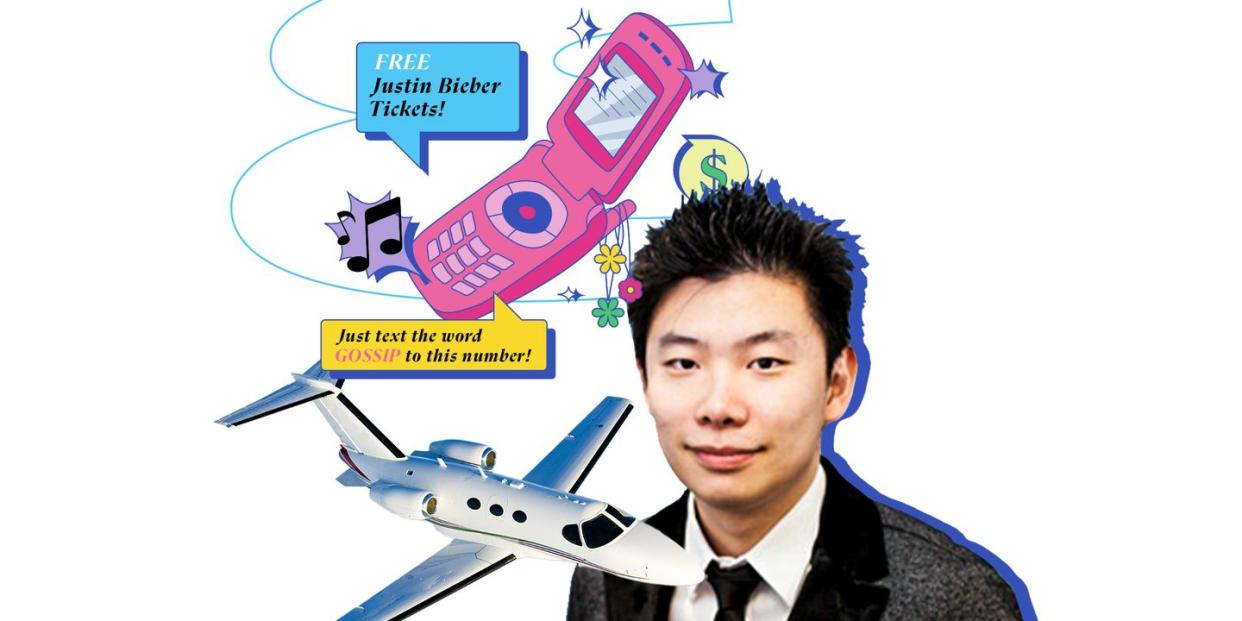
If you had an Internet connection at any point in the aughts, you’ll likely remember a series of pop-up and banner advertisements designed to prey on the lonely and insecure, the gullible, and the vulnerable. These ads appeared all over social media and inside games like FarmVille, and they made bizarre promises. My Luv Crush informed users they had a secret admirer—and it was someone they knew. Text NOW to find out who before the message expires! Another ad promised to reveal a user’s IQ score if they would answer twenty questions like “What color is the ocean?” One promotion offered “Free Justin Bieber Tickets!”
These advertisements might have been annoying, but they appeared to be innocuous. In fact, they were at the center of one of the largest cybercrime rings ever assembled, and its story has been largely untold until now because one of the last perpetrators was only just sentenced after years of testifying against his co-conspirators. The crime: sneaking hard-to-cancel, recurring monthly payments onto cellphone bills, sometimes those of people who never even subscribed. The perpetrators: mostly college-age kids. The implications for the telecom industry, federal regulators, and your phone bill: incalculable.
The idea was pioneered by a Chinese immigrant named Lin Miao. Miao was brought to Salt Lake City at age 12 with no winter coat. He built his first computer with spare parts he found at garage sales. Then, in college, he co-founded an online advertising network that would eventually be valued at $130 million.
His story appeared in one of those Chicken Soup for the Soul books devoted to “extraordinary teens.”
With his success came private jets to Las Vegas, $400,000 monthly credit-card bills, and sugar babies—so many sugar babies. That all vanished in 2015, when a team of FBI agents greeted Miao as he got off a plane at LAX and arrested him on charges of wire fraud and money laundering. While he has testified in court, he has not spoken publicly about his crimes until now.
Miao, 36, sat recently in an office in a non-descript commercial park in Bakersfield, near where he now lives, talking about a period in his life almost as if he’s talking about somebody else. “I’m still struggling with a lot of it. Because it was an emotional experience,” he says. “I went from nothing to so much, so quickly. And then the drinking, the drugs, the girls—I still get flashbacks, moments. I have to constantly remind my brain: That’s not who I am.”
And yet, for a good many years, it’s exactly who he was.
“The American dream” has become one of the more useless phrases in the lexicon, so bastardized as to have completely lost all meaning. But its most basic criteria seem to be coming to the States with no money, then making a lot of money. But what does it take to make that dream come true? What are you allowed to do, or not do? Who is the exemplar? Depends who you talk to, and the answers can range from Don Corleone to Tucker, a man and his dream. The mythology is so powerful, the temptation to make itso strong, even you might not know what you’re capable of when the American dream becomes a feverish nightmare, in which the world—and you—look both familiar and completely unrecognizable.
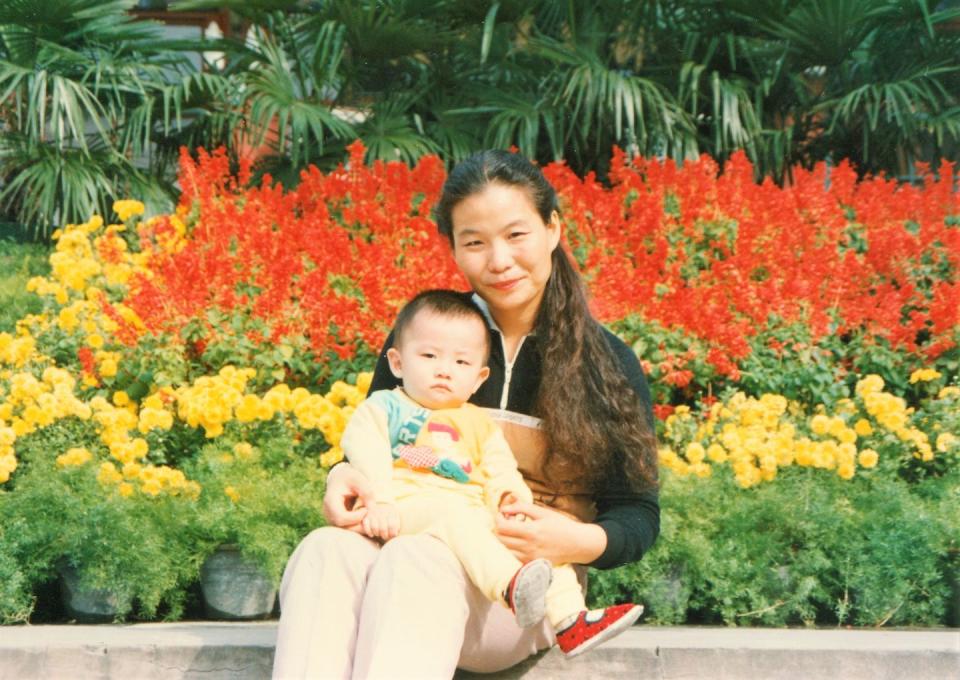
Lin Miao? He spent the first years of his life in Beijing. His biological father abandoned the family when Lin was an infant, forcing his mother, Jane, to go to work. When her son was a toddler, Jane moved to Brisbane to study, leaving Lin behind in a small, one-bedroom apartment with his grandmother. Three years later she sent for him.
The transition was jarring. In Australia, Jane met and married an American named Kenneth—a retired truck driver twenty years her senior who lived on modest disability payments. Lin struggled to learn English, using hand signals in class. When he turned 12, the family moved again to Salt Lake City, to be closer to Kenneth’s family. Jane, who had a degree in chemistry, got a job working at a factory that made laundry detergent. Money was tight, and for time Lin slept on the floor at an aunt’s house while they got settled. At school, he was so ashamed of his second-hand backpack that more than once he told his mom he’d lost it, only for her to find it stuffed at the bottom of the trash bin.
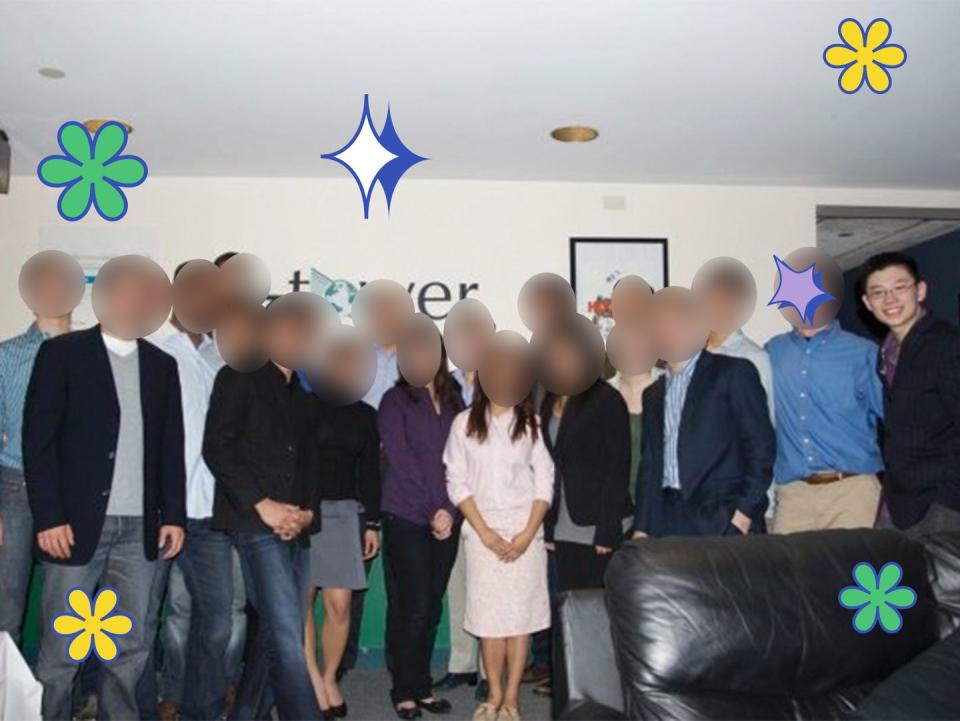
Miao picked Babson College out of a guidebook he found at Barnes & Noble, mostly because the school offered entrepreneur students up to $2,000 to start their own businesses. He settled in to Babson, outside Boston, in the fall of 2005, a business major with a Wall Street movie poster above his bed in a dorm called Entrepreneurship Tower—a cluster of rooms where twenty-one would-be titans watched The Apprentice together every Thursday night. Maybe these would be his people, he thought.
But he was still an outsider. He didn’t drink, he didn’t swear. “Everyone used the F word,” he says. Miao, raised Mormon by his stepfather, said frick. “People laughed at me.” He couldn’t afford to fly home for Thanksgiving. The dining hall was closed for the holiday; he spent what little spending money his mother had given him on Domino’s pizza.
Freshman year, Lin started a business selling remaindered posters (of cats and motivational sayings) out of a kiosk at the local mall, using that $2,000 grant he’d read about in the guide book. But retail wasn’t the future. When he returned to campus as a sophomore, in the fall of 2006, Miao started to notice ads all over the Internet promising Ten ringtones sent to your phone for $9.99 a month! You didn’t even need a credit card; just text the word RINGTONE to some five- or six-digit number and the charge would appear on your phone bill. Ringtones were a big deal then, a way to stand out from your peers by having 50 Cent’s “Candy Shop” play every time your phone rang (back when people made calls). Miao did some research and discovered that this ringtone company would pay you $18 for every customer you enticed to subscribe to their service. He nearly dropped to his knees.
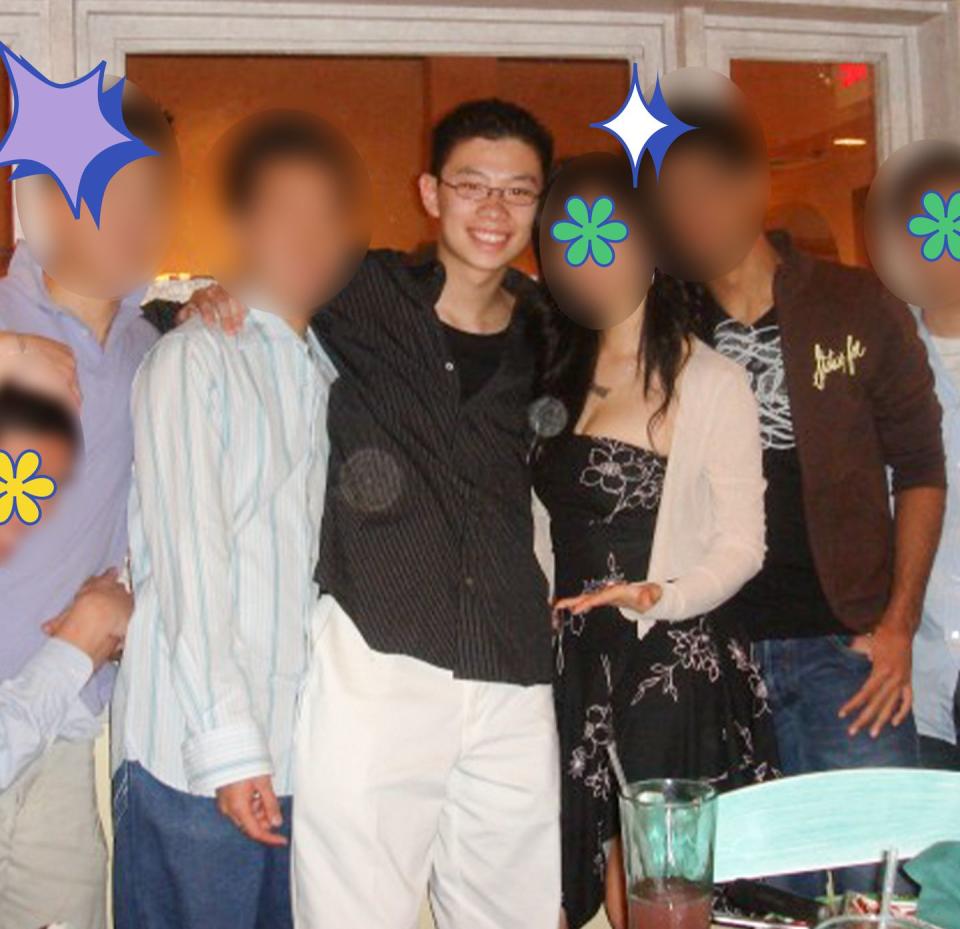
Miao had become friendly with a couple of guys in the Boston area around his age who were ace programmers, and he convinced them to go into business with him. All they needed was a website where they could place the ringtone ads. Miao asked them what would be a cool site with a big following. Both friends happened to be into UFC fighting. If they’d build a UFC fan page, Miao explained, he’d use keywords to drive traffic to the site.
Very quickly, they were receiving deposits of $10,000.
It was 2006 and still dirt-cheap to advertise on MySpace (once the largest social media platform in the world). So Miao plastered ringtone ads there, too. A few months later, he called Bank of America to check their account balance. “It was $700,000,” he says, still mystified today.
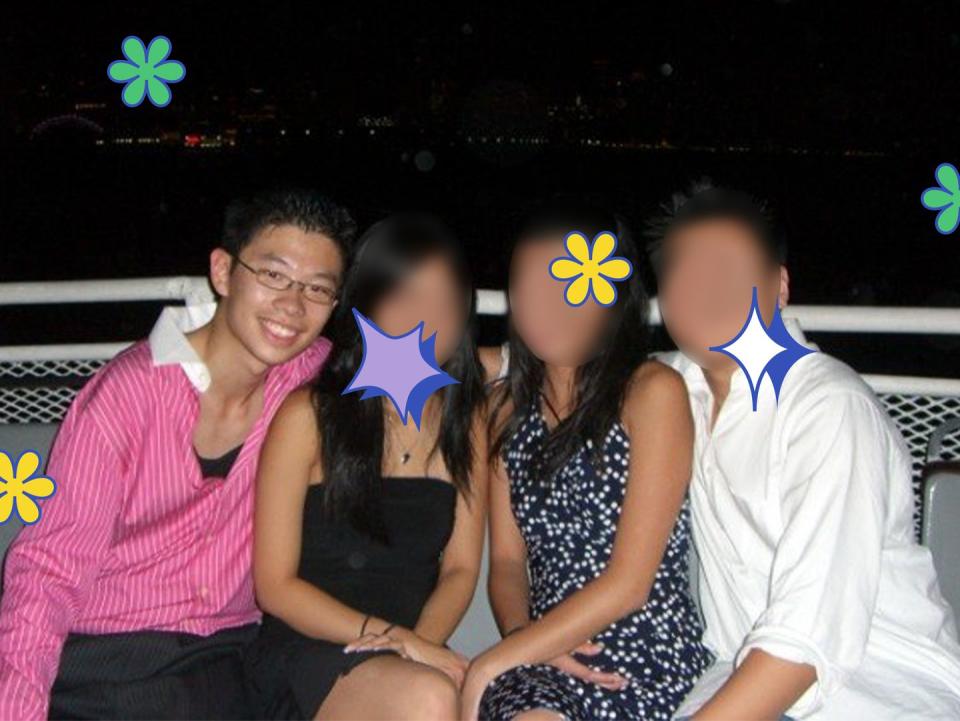
One of the programmers had recently turned 21 and had heard about a champagne called Dom Pérignon. He suggested throwing a party at Miao’s dorm. Which is how several dozen undergraduates reared on ramen noodles and Natty Light showed up one night to pound the good shit. They called it the Millionaire’s Party.
Miao had learned to measure his self-worth in money ever since he’d arrived in America. He saw the gulf between him and other kids his age. As a teenager one summer, while other kids were away at camp, he’d built IBM clones in his mother’s basement and sold them to neighbors, earning $10,000. (At his stepfather’s urging, he gave ten percent to the church and the rest to his mom, which she used to pay for programming classes Lin took at a nearby technical college.) In high school, he’d begged his mom to buy him a car—“Any car! The cheapest car!” She did not buy him a car.
At 20, he was so flush with cash—and so busy with this new business—that he leased a black Lexus RX350 over the phone. His mother didn’t understand. How could she?
Miao spent the summer of 2007 with the programmers building the company, which they’d named Tatto. He had heard somewhere that Tatto meant “authentic” in Italian. (It means “touch.”) Word started to get around about these three kids driving insane traffic. At a San Francisco conference called ad:tech, two representatives from Mobile Messenger, a U.S. mobile aggregation company, invited the boys to lunch. Miao expected to be feted. Instead, he got an hour-long economics lecture. “You guys are losing $80 dollars a customer,” he was told even before the iced teas arrived.

Miao blinked twice. But the reps did the math for him: If the average ringtone customer stayed on for eighteen months, the lifetime value of that customer was more than $100. But Tatto was paid only a one-time fee of $18. “Our top guys are making $30 to $40 million a year,” one rep told Miao. “They’re buying Ferraris, Lamborghinis, whatever they want.”
For a cut of the profits, Mobile Messenger promised to show Tatto how to do it. Mobile Messenger would get them their own “short codes”—those five- or six-digit numbers potential customers would text to subscribe—and they’d also supply the content (ringtones, trivia games, whatever was hot). There were logistical complications to work out. Carriers like Verizon and AT&T paid Tatto quarterly. To drive the kind of traffic Mobile Messenger was talking about, Tatto would need cash to flood the market with ads. No problem, Mobile Messenger said. They’d front them the money. Miao would just need to do what he did best: drive conversions through search optimization.
Mobile Messenger sent Tatto a door-stop of a contract which, Miao admits, “We didn’t read.” He and the programmers “took a deep breath, and we signed.”
Miao couldn’t believe how fast the money was coming in. When the ringtone market started maturing, Mobile Messenger moved Tatto into the premium SMS space—text messages. (Remember the next wave of ads promising “fun facts” or “celebrity gossip” delivered to your phone?) They also told them about a promotion called My Luv Crush, where a user would see an ad promising they had a secret admirer.
Tatto was now spending something like fifty cents to acquire a customer worth $100.
Things were moving so fast the programmers suggested bringing in a fourth partner, someone charismatic who could help build out their network. And they had the perfect guy in mind: Andrew Bachman.
Bachman was something of a local legend, Miao recalled. As a student at Babson, according to Miao, Bachman was reputed to run an underground poker game and walk around campus with a bodyguard. He came on and quickly closed a deal to run Tatto’s promotions on MyYearbook.com, which was huge at the time. But it wasn’t Bachman’s business acumen that sold Miao. It was something more elemental, something that appealed to the immigrant in Miao—the outsider who felt like everyone was playing a game he’d never understand. On a memorable bus ride from New York to Boston, Miao recalled, “Andrew said to me, ‘Clearly you know how to make money. But I can give you what you don’t have. I’ll take you to the best nightclubs in Boston, I’ll teach you how to dress. I’m gonna throw everything away and build you the wardrobe you deserve.’
“He was obnoxious,” Miao admits, but also intoxicating. “He knew the chef, he knew the club owners.” When Bachman asked why he was still living in the dorm—“The dorm is where peasants live!”—Miao rented a 1,200-square-foot penthouse at 660 Washington Street, near Boston Common, a corner unit in a building with a 24-hour fitness center and dry cleaning.
Miao recalled one of the first nights Bachman took him out. “I just remember two bodyguards surrounding us at all times. We had a table set up—the alcohol, the champagne…It didn’t seem like a geeky person at the club with money. It seemed natural.”
As a freshman, Miao had met his first girlfriend on a message board. Now he was about to take home a stripper.
Tatto made $10 million that year, Miao estimates. And if the money sounds too good to be true, it was. The Washington State attorney general sued the company in 2008 on behalf of the state’s aggrieved constituents, alleging it was easy to sign up for promotions like My Luv Crush but almost impossible to cancel. Thousands of customers had no idea what they were signing up for.
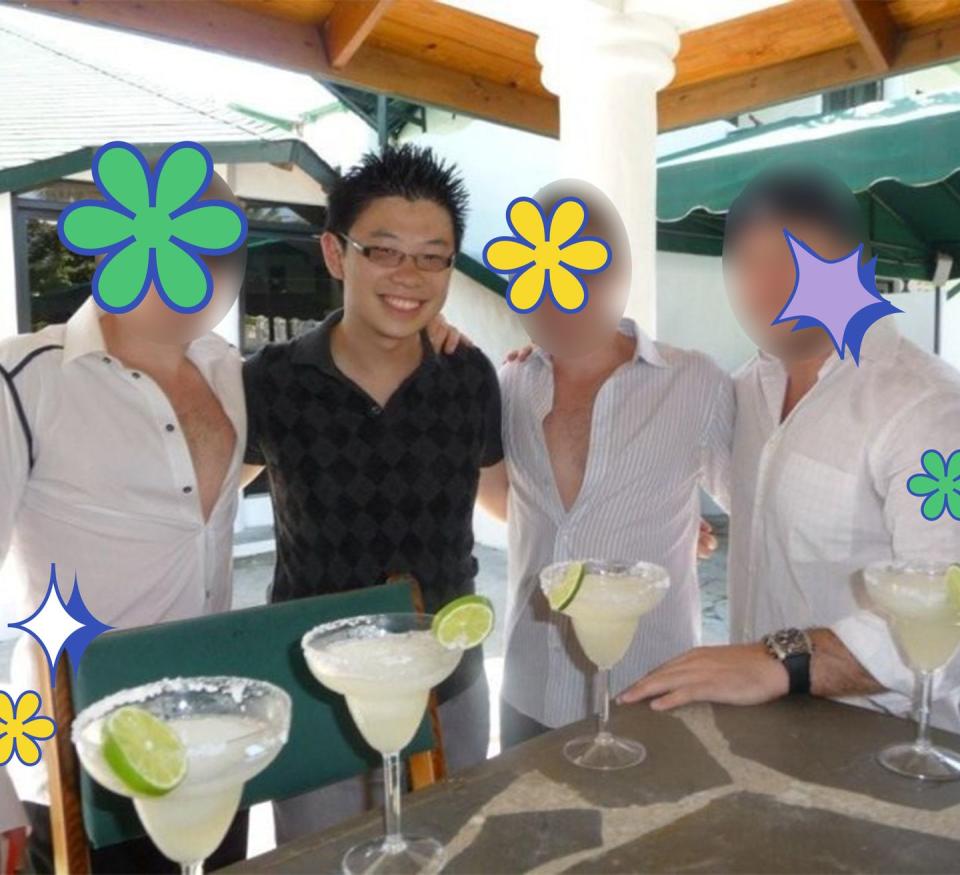
Tatto retained major counsel, K&L Gates, whose clients included Bank of America and Carnegie Mellon. At Bachman’s urging, they’d also opened an expansive office on the forty-fifth floor of the Prudential Center, a landmark Boston skyscraper. But it was all a bit like playing house. In their first meeting with their legal team, one of the lawyers asked, “Do your parents know what you’re doing?”
Miao had barely spoken to his mother in months, knowing she wouldn’t approve of his spending.
But the CEO of Mobile Messenger, Darcy Wedd, was feeling good. Wedd, a cool-acting Aussie cat who would later produce a few forgettable movies, got Miao on the phone and said, We’ll handle it, I’ll get my general counsel, he’ll act on your behalf, he’ll settle with the attorney general, you’ll pay a fine and it’ll go away.
And that’s exactly what happened. “We paid $21,000,” Miao said. Tatto had probably spent more on Aeron chairs.
The programmers told Miao they were feeling squeamish, he says. When you’re making this kind of money, people want to know where it’s all coming from. And they didn’t have a good answer. My Luv Crush? Free Justin Bieber tickets?
They didn’t want to quit, of course. They had a Centurion Black Card, the invitation-only high-roller card from American Express. Neither programmer responded to several interview requests.) So Lin attempted to build a “legitimate front.” The programmers relocated and opened a satellite office, hiring additional programmers to build “a smart display advertising network.” A glowing article in Entrepreneur celebrated the company’s ambition to “fundamentally change the way advertisers pay for display advertising…shifting the display marketing paradigm from paying for impressions to paying for performance.” The article was written by a friend of Miao’s who apparently took the company’s spin at face value.
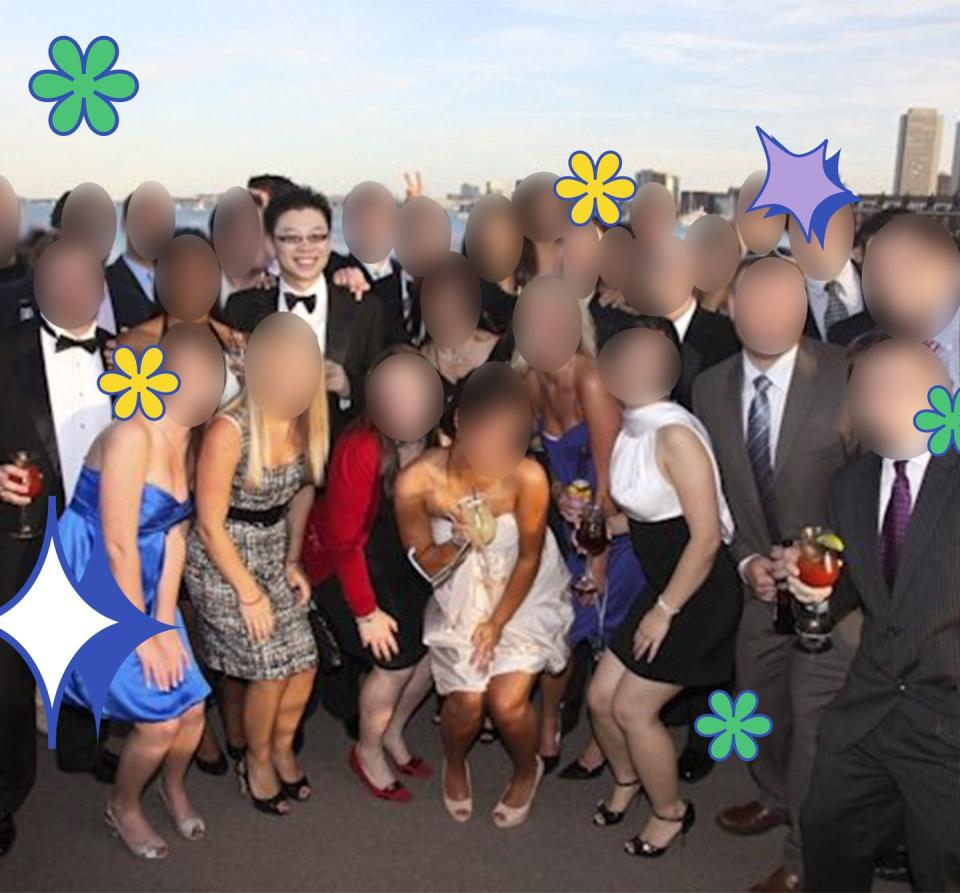
Calls started coming in from venture-capital firms interested in potentially backing Tatto—firms like Oak Investment Partners (which had put money into PetSmart and P.F. Chang’s) and Highland Capital (which backed Lululemon). Maybe Miao could pull this off. But then a $30 million offer from Oak Investment Partners fell apart in the due diligence phase. “[Tatto] was never meant for venture capital,” Miao says. (Around this time, both programmers severed ties with Tattoo. Neither was ever named in the lawsuits against Tatto.)
More lawsuits materialized, including a class-action suit in Illinois. Then, on March 6, 2009—a few months before Lin graduated from college—the Washington AG sued Tatto again, this time for failing to comply with the initial settlement. Tatto paid half-million dollars to settle, Miao says. But bad publicity followed. The CEO of Zynga (makers of the game FarmVille), Mark Pincus, singled out Tatto for its misleading advertisements. An article on TechCrunch referred to Tatto as the “scum of the Earth.”
A lawsuit brought by the Florida attorney general would prove devastating. On top of a $500,000 fine, cell-phone carriers would now be required to update their billing practices. Pricing disclosures would have to appear in an easy-to-read font, and there would be compliance teams in place.
The effect was immediate. Once customers could see exactly what that $9.99 monthly charge was for—and how to cancel it—the market imploded.
The employees were laid off, a two-story office space abandoned. Tatto was close to bankruptcy.
Miao knows this was the moment he should have quit, too. But he wasn’t thinking straight, for the same reason so many others failed to think straight: Lin Miao was in love.
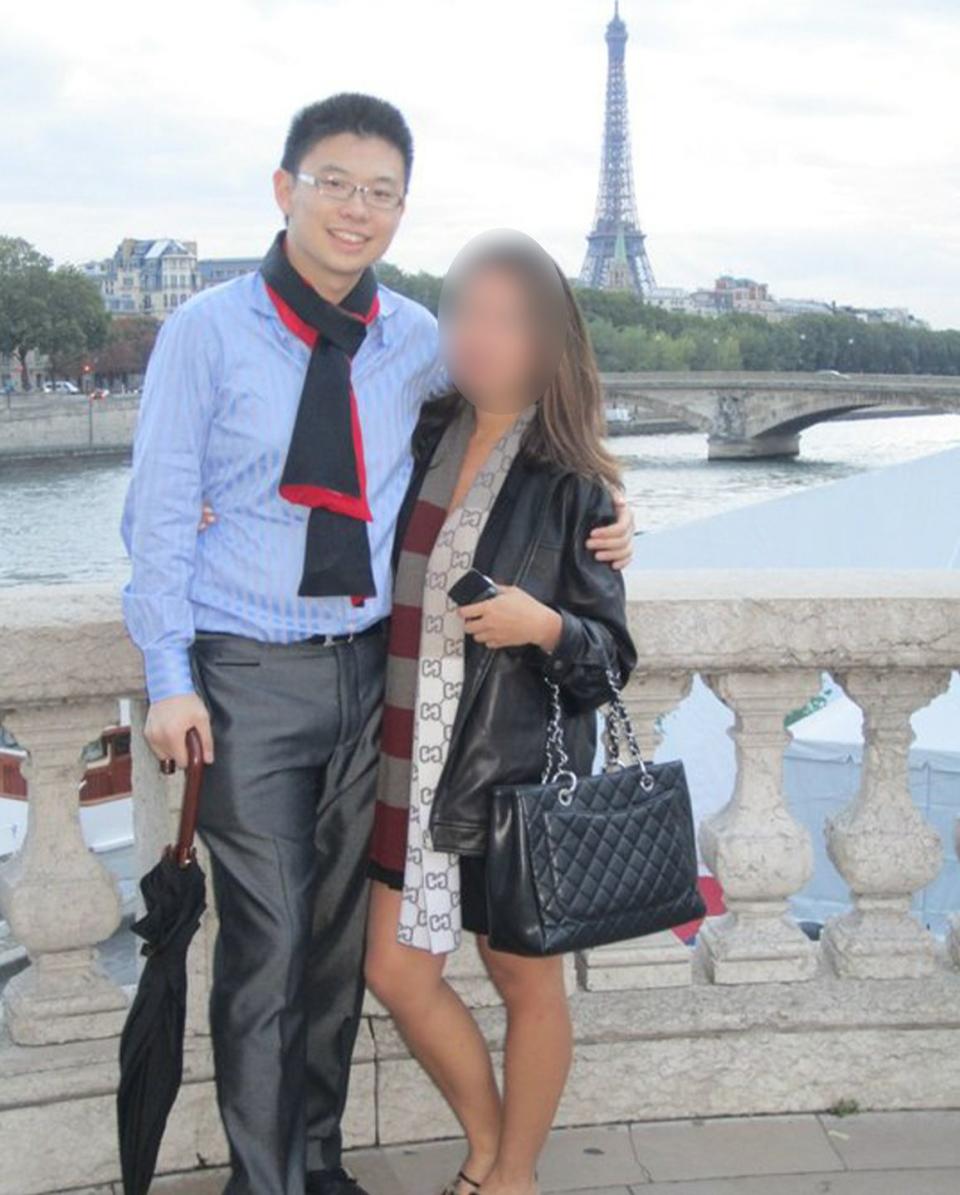
He shared some things in common with Kelly Mi Li. Like him, she was a Chinese immigrant whose father had left the family, and she’d grown up without a lot money. In college, she sold insurance—and eventually dropped out because she was making so much money. Later she moved to Los Angeles and got a job running the food-and-beverage operation for a boutique hotel. Kelly was vacationing in at a Las Vegas day club one weekend in 2009 when (at Bachman’s urging) Miao asked for her number. She told him to find her online instead, which he took as a challenge.
A week or two later, on a business trip to L.A.—a trip he manufactured to see Kelly—he booked a room at the Mondrian (a hotel she’d mentioned) and asked her to dinner. Kelly would only agree to an early drink. But when they met up again a year later, this time in San Francisco, she reconsidered.
“I was intrigued,” she recalled. “Nothing happened that weekend, but we had a great time getting to know each other. I dated a lot of men who were five or seven years older than me. Everybody would have no idea what they wanted in life. I told my girlfriend, ‘This guy is so young but he knows exactly what he wants.’”
Kelly had opened a restaurant in L.A. but soon sold her stake to an investor and moved to Boston to give this new relationship a chance—this guy was special. After she dismissed fresh flowers as “a waste of money,” Miao taught himself to fold paper flowers and surprised her with a bouquet.
Kelly was practical; Lin was a spender, throwing around his cash. They moved into the Ritz-Carlton, where he was paying $12,000 a month in rent. On a trip to New York, he booked the Tiffany Suite at the St. Regis. When he proposed—with a big speech, on a flight back from Paris—she cried.
But Miao had a secret: He was going broke. The premium SMS space was weakening quickly. Whatever money Tatto still had coming in was from residual subscribers—people who truly never looked at their phone bills—and he had just $150,000 left in the bank. He was afraid Kelly would leave if she knew the truth. He knew this wasn’t the way to begin a marriage, but he wasn’t willing to take a chance, going so far as to make a $2 million offer on a condo he knew he couldn’t afford. To get out of the deal, he told Kelly a new lawsuit had just come up—something “frivolous”—and his lawyer didn’t want him “making any big purchases” until it was settled. His panic only intensified when Kelly started talking about moving back to L.A. together.
Miao needed a life line when he remembered meeting a guy who worked for a Mobile Messenger competitor, which did many things but also one: You know when you buy an iPhone and it has to be activated? His company did that. Which gave him access to millions of real customer phone numbers.
Miao talked to the man, Alex (not his real name), about a plan to spam these numbers—a so-called phishing expedition, where you send an official-looking text message in an attempt to trick the receiver into subscribing. This is hard to pull off. Standard industry practice requires a double opt-in: First you see an advertisement promising, say, weekly Hollywood gossip sent to your phone (Just text the word GOSSIP to this number!); once you do that, you receive a text asking you to confirm (Reply now with this PIN if you really want to subscribe).
But Miao had a better idea: He had access to phone numbers. What if he straight-up enrolled people, bilking strangers out of $10 a month? Maybe they wouldn’t notice. And if they did—and they canceled—he’d just enroll more people. Miao talked to a programmer who said it would be easy to tweak some existing software.
This is what can happen. You get closer, then closer. You make a dollar, then another dollar, then a thousand, then a million, and little by little all that money blots out the person you used to be. You don’t even realize it, because what you thought was a dream is coming true and you never want to wake up. “Maybe I was delusional,” Miao says. “But it felt normal to me.” The Bieber tickets had been real, he’d rationalized, but to get them you had to subscribe to so many monthly promotions no one made it to the end. Was this much worse?
Lin and Kelly got married in Malibu in May 2011. His mother and stepfather flew in from Salt Lake, but Lin mostly hung out with his buddies and got drunk. Lin’s stepfather gifted the newlyweds $200. “This is the American way,” his mother explained. But they cut their trip short by a day or two.
“I didn’t recognize my son,” Jane says.
Miao dispatched Kelly to Los Angeles to look at homes, telling her to spend, spend, spend. In January 2012, they bought a 6,000-square-foot, five-bedroom, six-and-a-half bath house in Beverly Hills for $3 million. But Miao’s mind was elsewhere. Avoiding detection proved to be serious business. When Wedd caught on quickly, Miao recalls him saying, “You know this could mean jail time.”
Miao took it as an opportunity to pitch Wedd, saying autoenrollment was their chance to make real money—together. Wedd agreed to help in exchange for $100,000 plus a percentage of Tatto’s weekly revenue. Wedd also insisted Miao work with Mobile Messenger’s engineers to better cover their tracks. There were pitfalls everywhere: If too many customers complained to Verizon or AT&T about a specific promotion, the carrier would shut down that short code. It could take months to get new codes. Miao and Bachman started buying spreadsheets of phone numbers that didn’t belong to executives at mobile carriers. They called these “ninja lists.” (Tatto also had to buy IP addresses which they’d randomly assign to “subscribers” in case the company got audited.)
“I was just trying to make it to the next week,” Miao says. (Neither Bachman nor his lawyer returned a request for comment.)
But his success at evading detection also made Miao feel invulnerable to the rules of good and moral behavior. Tatto generated millions of dollars in revenue through mid-2013. Some nights he’d tell Kelly he had to stay late at the office, only to join his programmers at the karaoke bars in Koreatown, where girls would ask him for gifts or for cash to pay their rent. Miao—who graduated from ecstasy to coke—got off on the attention.
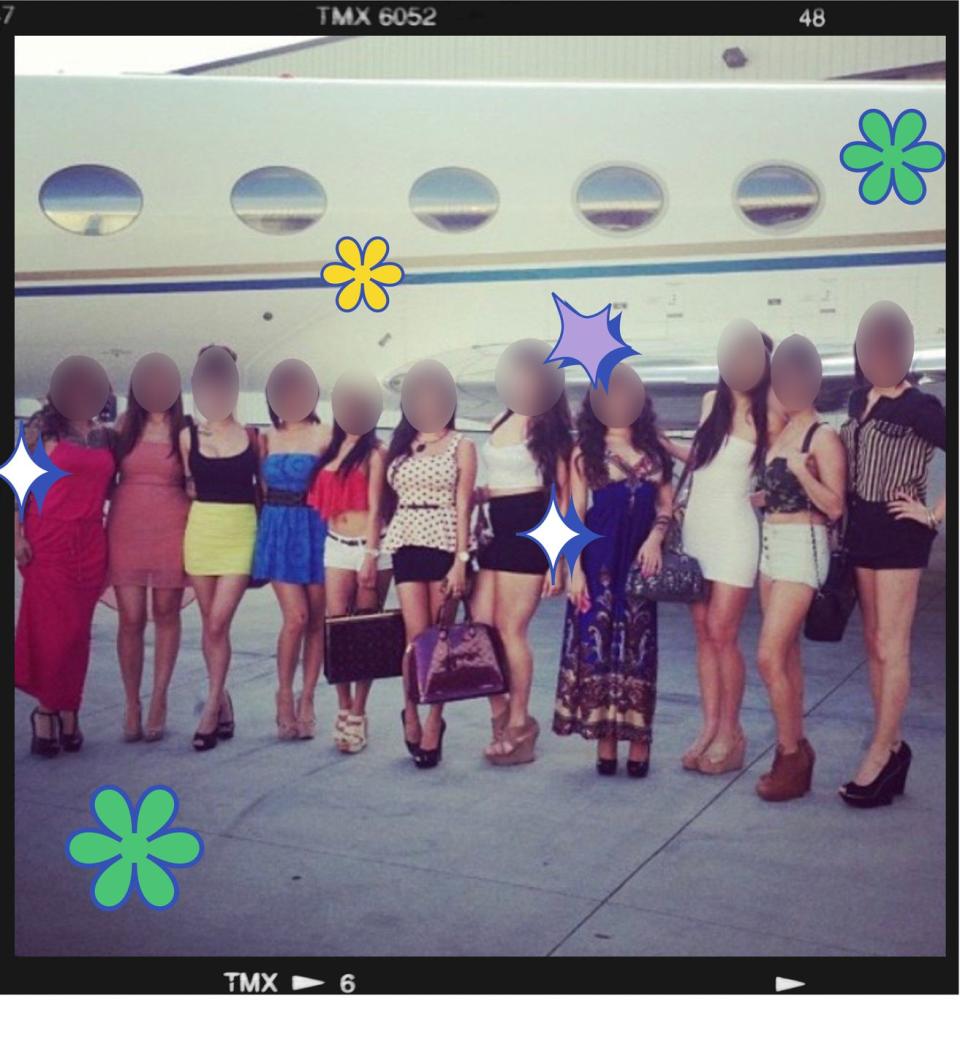
His monthly Amex statements read like an itemized breakdown of his monster id. Bachman drove a Ferrari; Miao bought a Ferrari. He once sent Kelly to London on a girls trip while he threw his own junket, inviting ten women to Vegas on a G4. When the girls boarded the private jet he had expensive handbags waiting on the seats. “Party gifts,” he called them, from Louis Vuitton, Gucci, and Chanel.
This was the American dream, wasn’t it? Or a particular man’s version of it, anyway. Rise up from nothing, make more money than you thought possible, and use it to become the king of the world—or, at least, of your world.
Kelly suspected something wasn’t right. “She’d see my phone or e-mail,” Miao says. “She’d be like, ‘Who is this?’ She wanted access to my Amex Platinum statement.” Kelly denies asking to see his credit card statement, saying she didn’t need to. She recalled a thank-you note showing up at their house from a salesperson at Gearys, a luxury shop in Beverly Hills, saying they hoped “the birthday girl liked her Rolex.” Kelly didn’t own the $26,000 Rolex, and it wasn’t her birthday.

The couple separated in January 2013, just nineteen months after Miao’s tearful wedding speech, and he moved to a condo nearby. Six months later, Kelly decided the marital home was too big for one person and they sold it; with the proceeds, she moved into a two-bedroom home in Beverly Hills for $1.8 million and he moved into a $2.7 million bachelor pad in West Hollywood with a pool and spa.
More and more short codes were getting shut down. Miao had been dodging calls from his mother for so long he was almost numb to it. “She would call me, call me, call me—and I never picked up,” he says. More than once he agreed to meet his mother—in Vegas, selfishly—only to make her wait in her hotel room while he partied.
But he was not entirely gone. On a long flight with nothing to distract him, he’d think of the nights he’d spent at his mother’s feet while she worked late. He’d scroll through his phone and see unread e-mails from her with messages like, “Please call me. I miss you, Lin.” Sometimes he’d pray. Other times he promised himself he’d call when the plane landed. “Just to hear how she was,” he says. But he never did.
In December of 2013, Miao woke up to the sound of someone banging on his front door. He was hungover from a company party and came to the door in his underwear and t-shirt.
A man with a clipboard identified himself as a receiver for the Federal Trade Commission and presented legal papers: the FTC was seeking an injunction against Tatto, Miao, and Bachman, who stood accused of “engaging in a widespread scheme to place unauthorized third-party charges on consumers’ mobile phone bills, a harmful and illegal practice known as ‘cramming.’” They’d been doing it since at least 2011, the FTC papers read. Miao’s bank accounts were frozen. Bachman’s home in Boston was being raided at this same moment; agents had already visited Kelly in Beverly Hills.
Miao finally called his mom. “I told her, ‘I’m innocent, I don’t know why they’re against me,’” he says, knowing he wasn’t innocent. He asked for money for food and gas. Jane, who was in treatment for bladder cancer at the time, rushed to the bank. “I was scared,” she says. “I did not know what is FTC. He says, ‘Mom, I need money, I need your help.’”
Miao told her he was going to fight the FTC, eventually borrowing $90,000 from her. She emptied her retirement account and put her home up as collateral. But when Lin saw how quickly his lawyers burned through cash, he realized this was futile and he settled.
In June of 2014, Miao was forced to surrender his home in West Hollywood, Kelly’s house, and three investment properties. She would need to return any gifts from her ex-husband, including a 10-carat Tiffany yellow diamond ring and a pair of six-carat diamond earrings.
Jane had to take three years of her tax returns and bank records to an FTC agent who combed through every deposit above $2 to make sure none had come from her son’s ill-gotten gains.
In total, fourteen bank accounts were seized, plus a 2013 Mercedes SUV, a 2014 Range Rover SUV, a 2011 Audi, and a 2009 Bentley. (The Audi had been a gift to one of Lin’s girlfriends.) Miao insists Kelly never knew Tatto was a scam.
But that wasn’t the end of the story. The FTC referred the case to the Southern District of New York, where agents suspected “deceptive advertising” was only a small part of what Tatto had been up to. And in May 2015, when Lin returned to Los Angeles from Cabo San Lucas, the FBI arrested him. “They handcuffed me,” he says, “they threw me against the wall.” His new girlfriend screamed.
The sealed complaint—an investigation jointly conducted by the IRS Criminal Investigation Division and the FBI, dated May 26, 2015—was thirty pages. Miao and several co-conspirators were accused of cheating mobile-phone customers out of tens of millions and were charged with conspiracy to commit wire fraud and mail fraud.
Each count carried a maximum sentence of twenty years in prison.
Kelly says that in the period after Miao’s downfall, she suffered memory loss and sciatica, which she attributes to the stress. She went back to doing insurance work and sold some of her clothing on sites like the RealReal. She and her mother also helped pay Miao’s legal bills, which seems wild in retrospect, though as she explains it, “At the end of the day, Lin was still part of the family. I didn’t know if he was innocent or not.” He has still not told her the full extent of his crimes, she says. (She currently produces and stars in the Netflix reality show Bling Empire.)

By the time Miao was sentenced, on July 19, 2022, seven years had passed since his arrest. He and his fiancée moved to Bakersfield where they rent a four-bedroom house for $3,300 a month.
The time has been—well, it’s been weird. Forever an entrepreneur, Miao built yet another business, a storefront and warehouse where he sells returned and remaindered items like home décor and small appliances at a discount.
After signing his cooperation agreement, Miao’s accountant had to sort through years of unpaid taxes. Miao owed the government something like $700,000—which was negotiated down, he says. (He’s nearly caught up on the payments.) His license was suspended at the time, so Miao tooled around Bakersfield in the back of a chauffeur-driven Mercedes. It was a rare indulgence. He shops exclusively at Ross Dress for Less now, he says. His fiancée’s parents, immigrants from the Philippines, have moved in with them, and he’s proud to employ so many people in a town still recovering from the pandemic.
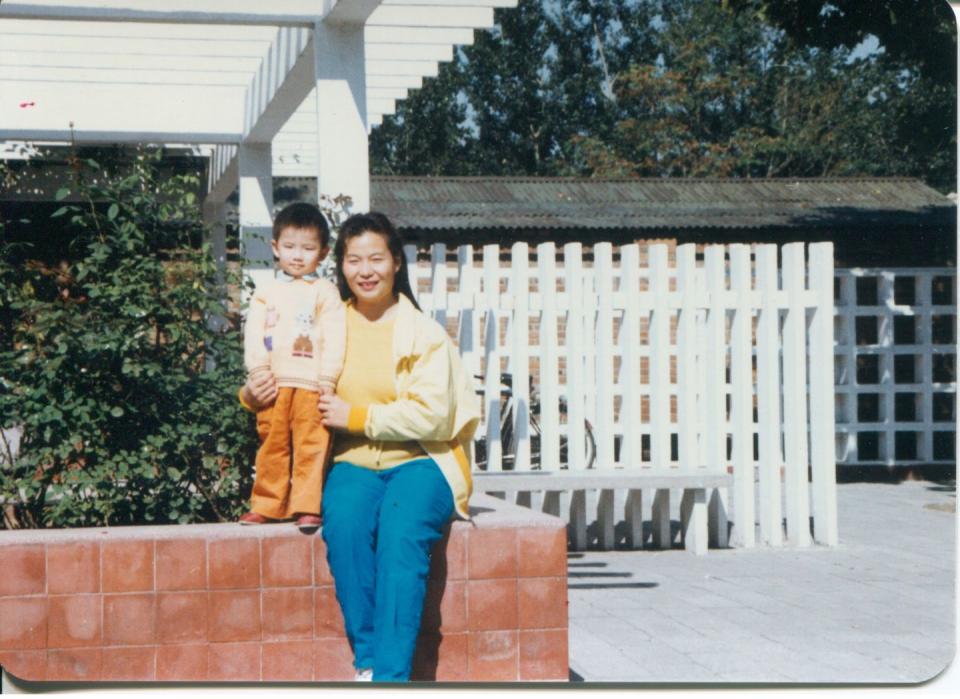
If you squint, you can still see the man who once flew to Macau and had seven SUVs waiting outside a nightclub to bring women back to his suite. It was cinematic, and that makes sense. Miao has been performing at masculinity his whole life—an immigrant who came to the States and took movies like Wall Street and Boiler Room as instruction manuals, not cautionary tales. He wasn’t even good at it. At least the goons at Mobile Messenger were smart enough to use fake e-mail addresses (like [email protected]). Miao used his own, once memorably writing to Bachman: “I LOVE AUTO. SHIT, I SHOULDN’T WRITE THIS IN AN E-MAIL. HAHAHHA.”
The sentencing guidelines for Miao recommended a duration of between 292 months to 365 months. But a pre-sentence report by the probation department, recommended no prison time. Miao had, they pointed out, provided information about several “higher-level uncharged targets,” the note read. He also supplied incriminating e-mails and “cross-corroborating information” about Darcy Wedd. Bachman, meanwhile, had cooperated with the government (providing info on Miao) but never testified. He’d received probation. It was only fair for Miao to receive the same.
While he awaited sentencing, Miao began to pay his mother back—$10,000 dollars at the point so far, a figure that barely scratched the surface, but it was something. The stress of the past seven years nearly ended her marriage, Jane says. Money was so tight she often sent her husband to WalMart to buy discounted fruit before it was tossed. She wanted to move closer to Miao and her grandchildren. But she couldn’t sell her home until Miao’s sentencing was complete, since it was collateral for his release.
Miao flinches when he thinks about the money he spent—her money—fighting the FTC, calling that lawsuit his mother’s “first heartbreak.” When she finds out the rest of his story, he says, “that will be the second.”
In July 2022, a judge sentenced Miao to eighteen months in prison. The FTC had previously begun restitution, sending out 22,671 refund checks to Tatto and Mobile Messenger’s victims, totaling more than $2.1 million dollars. The average check was for just over $92. They did not expect to recover more. Miao surrendered on February 6, 2023.
I asked Miao if he felt remorse for his many, many victims. He said he did, but that what he did to his mother was far worse. That she’d made huge sacrifices for him—leaving China, taking out loans to send him to college, emptying her retirement account to pay his legal bills—and he threw it in her face: “I feel like I wasted years of what I could do.”
When Miao’s son was born, Jane bought the boy a gift from his grandmother—Miao has to collect himself when talking about it, the only time in our many hours of conversations over several years that he got emotional. Jane didn’t have a lot of money but she was proud of her gift, because she hoped that when the boy was old enough, it would help him do well in school, which would makes all his dreams come true: a brightly-colored, secondhand backpack.
You Might Also Like